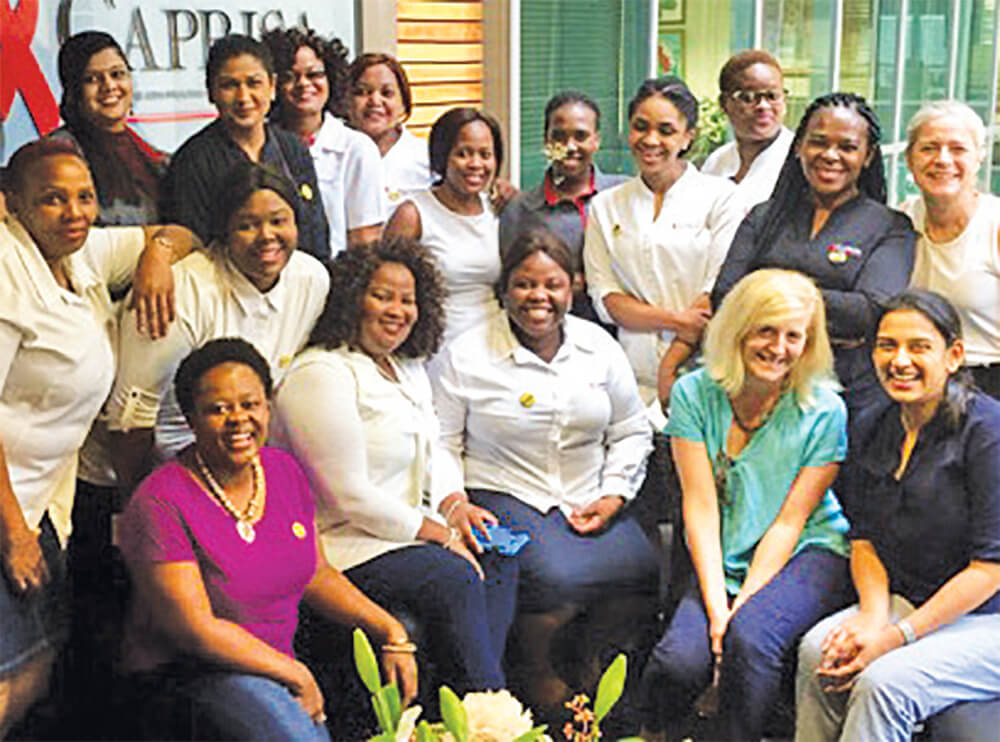News
Advocating Activism
Pioneering social worker-turned-activist uses her passion to elevate social work impact and teaches her students to do the same

Although Dr. Jennifer Zelnick now spends most of her time back in the States, she still returns to South Africa for research projects. Most recently, she has traveled there to train social workers as part of an initiative to improve outcomes for patients with drug-resistant tuberculosis and HIV. According to Zelnick, social work values, centered in social justice and the dignity and worth of all people, are critical for diseases that have social as well as biological determinants.
You might say that Jennifer Zelnick has activism in her blood. Born in the 1960s and raised around activism in her family, it seemed logical for Zelnick, Associate Professor, Chair, Social Welfare Policy sequence at Touro Graduate School of Social Work to focus her academic and practice career on advocacy and community organizing to improve social policies in health and social services.
In 2001, when Zelnick was a doctoral student doing fieldwork in South Africa, 30 percent of the population in the province where she worked were HIV positive. TB was the most common opportunistic infection impacting HIV patients. By 2009, a drug-resistant strain of TB appeared and people were quarantined and dying. When new drugs appeared on the scene, Jennifer saw a path to contributing to the overall improvement of both healthcare delivery and overall health in her country.
“Recently, new meds have been introduced that are promising to be highly effective for drug-resistant TB strains. The problem is, treatment is long and people face significant barriers to getting on treatment and sticking with it.” Zelnick identified a range of barriers to health depending on the population, including poverty, a lack of family support, drug or alcohol problems and family violence. “I thought the way people deal with TB needed to be changed,” explains Zelnick. “In the past, patients were ‘directly observed’ when they received their drugs, which means a healthcare worker watched them taking their meds. But this approach didn’t take into consideration how someone may be stigmatized by this and therefore not seek treatment.” Zelnick and others have worked toward shifting care to a more patient-centered approach.
BEYOND THE CLASSROOM
At Touro, Zelnick shares her experience and passion for social justice and advocacy with her students by exposing them to theory both in and out of the classroom. Students are asked to attend local city council, borough and community board meetings as part of their policy education and use their experiences to dig deep into current social problems. To augment her teaching, Zelnick brings in materials from her own work in South Africa. “We also have an international case study, looking at community organizing within an informal settlement in KwaZulu-Natal, South Africa. Learning about housing activists in the informal settlements in South Africa opens students’ eyes to how homelessness, a very familiar problem here in NYC, plays out internationally.”
A number of her students have been inspired to get involved. “After visiting their local community board, three students went on to serve on them,” she explains. Another time, several students spoke about rent control issues impacting them as well as their clients at the Rent Guidelines Board in Brooklyn. Real-world assignments can lead to sustainable activities that empower our students, as well as their own communities.
In addition, Zelnick takes students on field trips to legislative action days in Albany and Washington, D.C., Social Work Day at the United Nations, and virtual town hall events such as one recently organized in collaboration with the University of Michigan’s Flint campus school of social work regarding that city’s water crisis. “Getting students out in the field and involved with policy practice or hearing about social issues first-hand by those who are impacted by them is at the heart of how we teach social work. Students learn by doing and taking the skills and knowledge we hone in the classroom and applying it in real life.”

